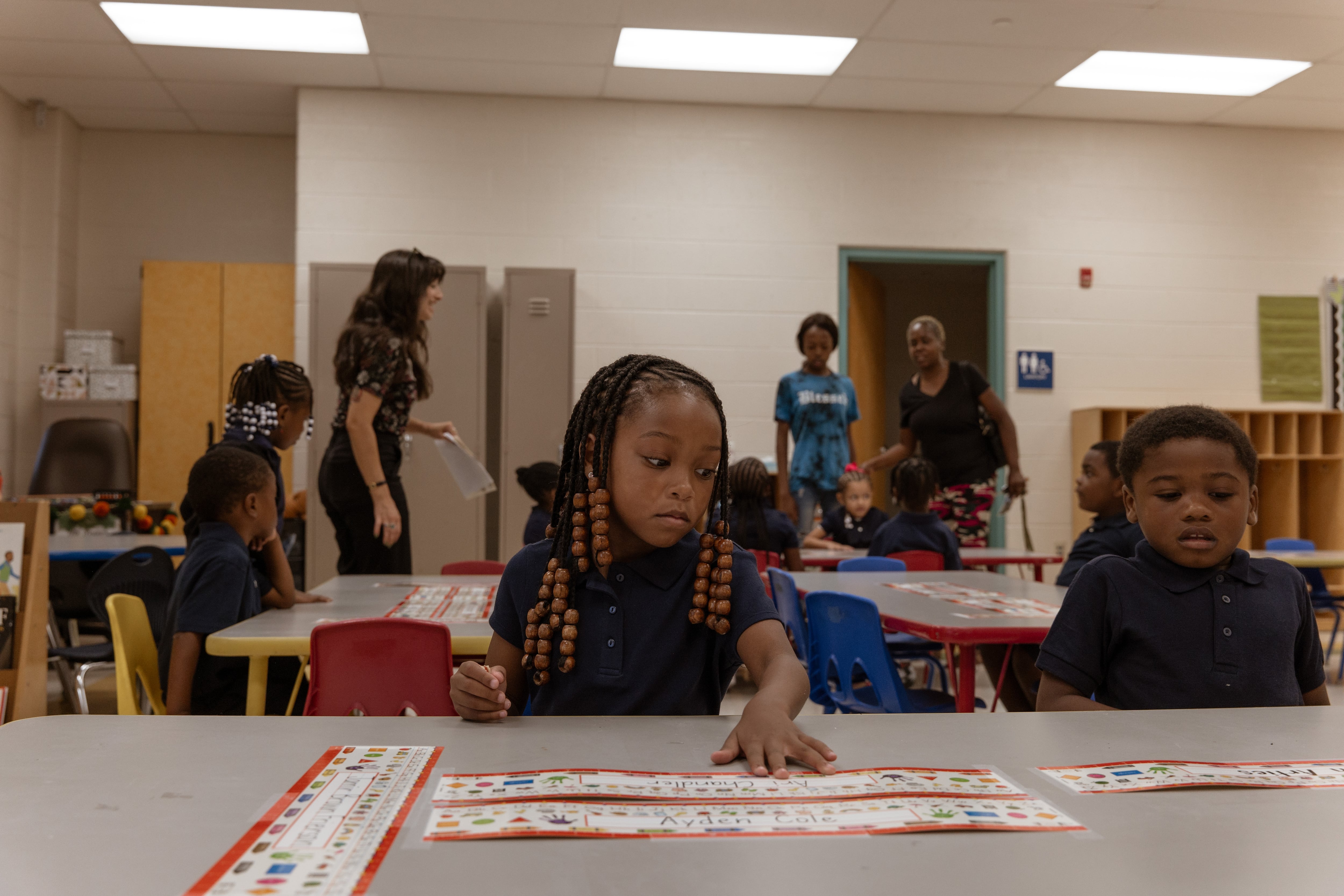Philadelphia students’ state test scores are slowly recovering back to pre-pandemic levels, but most students still aren’t proficient in English language arts, math, and science, while longstanding performance gaps between student groups persist, according to new state test scores.
And the city’s students are still scoring far below their peers in the rest of the state on the tests, which were administered last spring. The scores, released on Wednesday, essentially confirm preliminary data shared with the Philadelphia Board of Education in early September showing that Philadelphia students made small gains from last year, but that most are still not proficient. The scores also indicate that Philadelphia has far to go to meet the school board’s own long-term academic targets.
Scores released Wednesday for the Pennsylvania System of School Assessment, or PSSA, data for grades 3-8 show major disparities between white and Asian students and their Black and Hispanic peers in Philadelphia district and charter schools. Those gaps are most pronounced in math: Only 9.3% of Black students scored proficient and above on the math tests, while 44% of their white counterparts scored proficient or above. Some 11% of Hispanic students scored proficient or better in math while nearly 53% of Asian students scored the same.
Just 15% of economically disadvantaged students — who make up more than two-thirds of all city students — scored proficient or better in math.
Overall for the 2022-23 school year, 34.2% of Philadelphia students in grades 3-8 scored proficient or better in English, 20.4% of students in those grades scored proficient or above in math, and 41% of students in grades 4 and 8 scored proficient or better in science.
In 2021-22, the proficiency rates were 34.7% in English, 16.2% in math, and 37.1% in science — though the district’s science scores from that year do not include charter school students.
Philadelphia’s scores do show that students are gradually catching up to where they were before the COVID pandemic.
In 2019, 21.6% of students in Philadelphia scored proficient or better in math, while in English, 35.7% of students were proficient or better.
In late 2020, as part of a multi-year “goals and guardrails” plan, the district and school board set a goal that by 2026, 52% of students in traditional district schools, in grades 3-8 would achieve proficiency on the state math exam, and 65% of students would achieve proficiency on the state English exam.
Statewide, students scoring proficient or above in English increased slightly from 54.1% in 2021-22 to 54.5% in 2022-23. Over the same period, proficiency scores in math increased from 35.7% to 38.3%, and science scores increased from 54.4% to 58.9%. (Students did not take the state tests in 2020, while state officials say 2021 scores are not truly comparable to pre-COVID results.)
“This year’s assessment results underscore what we have said before — that with each passing year, participation and achievement will continue to improve,” Secretary of Education Khalid Mumin said in a statement Wednesday. “Pennsylvania’s results are well on their way to returning to pre-pandemic rates and we look forward to helping our students exceed those levels in the years ahead.”
But just as a much higher share of white and Asian students were proficient on state exams than Black and Hispanic students, there is a similar disparity when it comes to the lowest scores.
In English, 13.9% of white students in grades 3-8 scored below basic, compared to 29.4% of Black students, 33.4% of Hispanic students, and 9.6% of Asians, 14.1% of those who identify as multi-ethnic, and 27.7% of economically disadvantaged students.
In math, such differences are also stark. Overall, 57% of students in grades 3-8 scored below basic. That included 32.6% of white students, 69% of Black students, 66% of Hispanics, 22% of Asians, 45.4% of multi-ethnic students, and 45.4% of those who are economically disadvantaged.
District officials and board members said they were heartened by the increases from last year — however small — but said there’s more work the district can do.
Tonya Wolford, the district’s chief of evaluation, research, and accountability, told board members in September it is important to keep in mind that students “likely are not going from below basic to proficient in one year.” She said Philadelphia students will need more time, resources, and support to make the jump.
To emphasize the importance of students achieving proficiency in reading by third grade, the district also set a goal for 62% of third graders to score proficient on the state exam by 2026. Yet in 2022-23, only 31.2% of third graders scored proficient or above on the PSSA.
On Keystone exams — another state standardized assessment for high school students in literature, biology, and algebra — Philadelphia students also lag behind peers statewide. Just 25.1% of city students are proficient or better in algebra, compared to 34.2% of students statewide.
Carly Sitrin is the bureau chief for Chalkbeat Philadelphia. Contact Carly at csitrin@chalkbeat.org.
Dale Mezzacappa is a senior writer for Chalkbeat Philadelphia, where she covers K-12 schools and early childhood education in Philadelphia. Contact Dale at dmezzacappa@chalkbeat.org.






